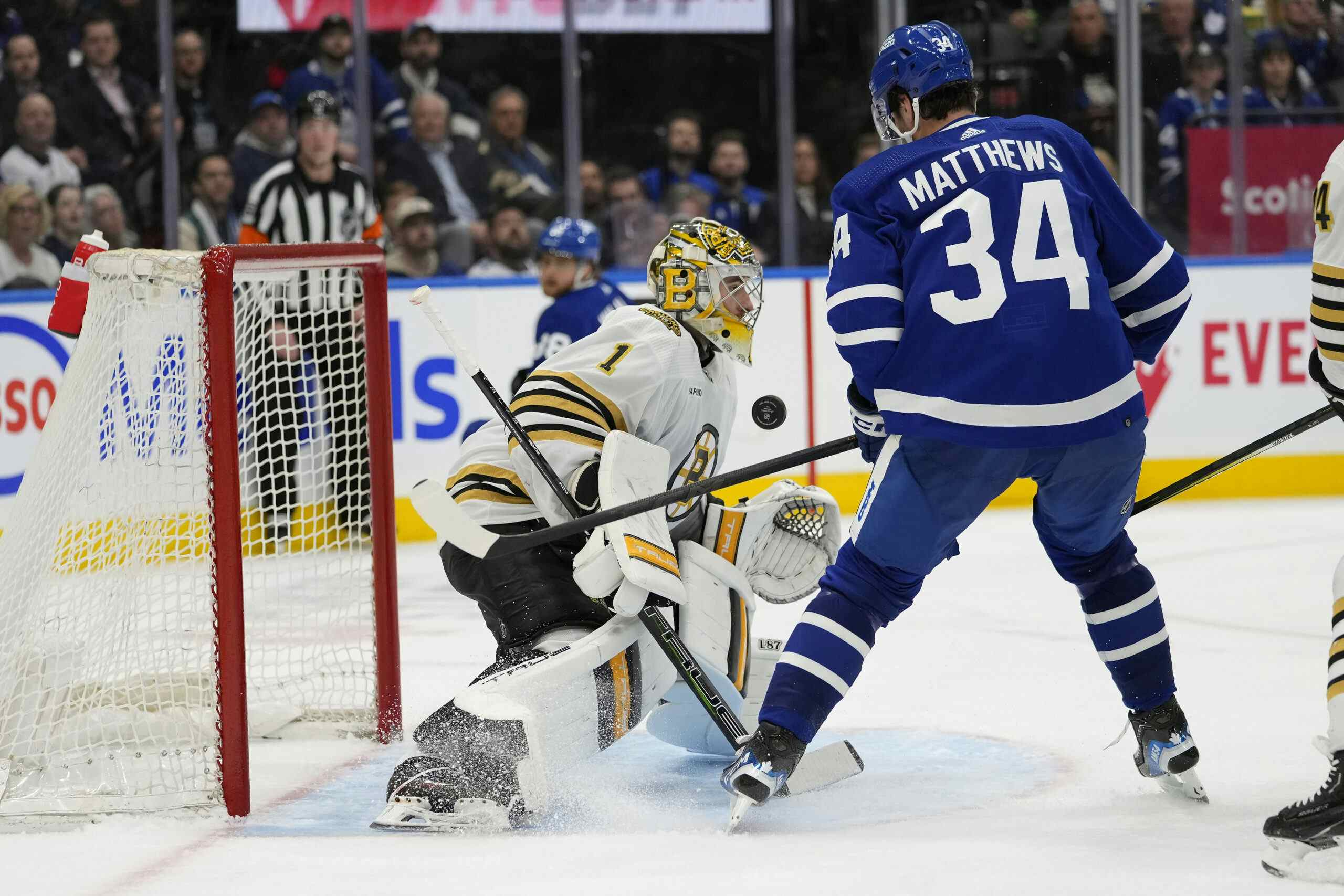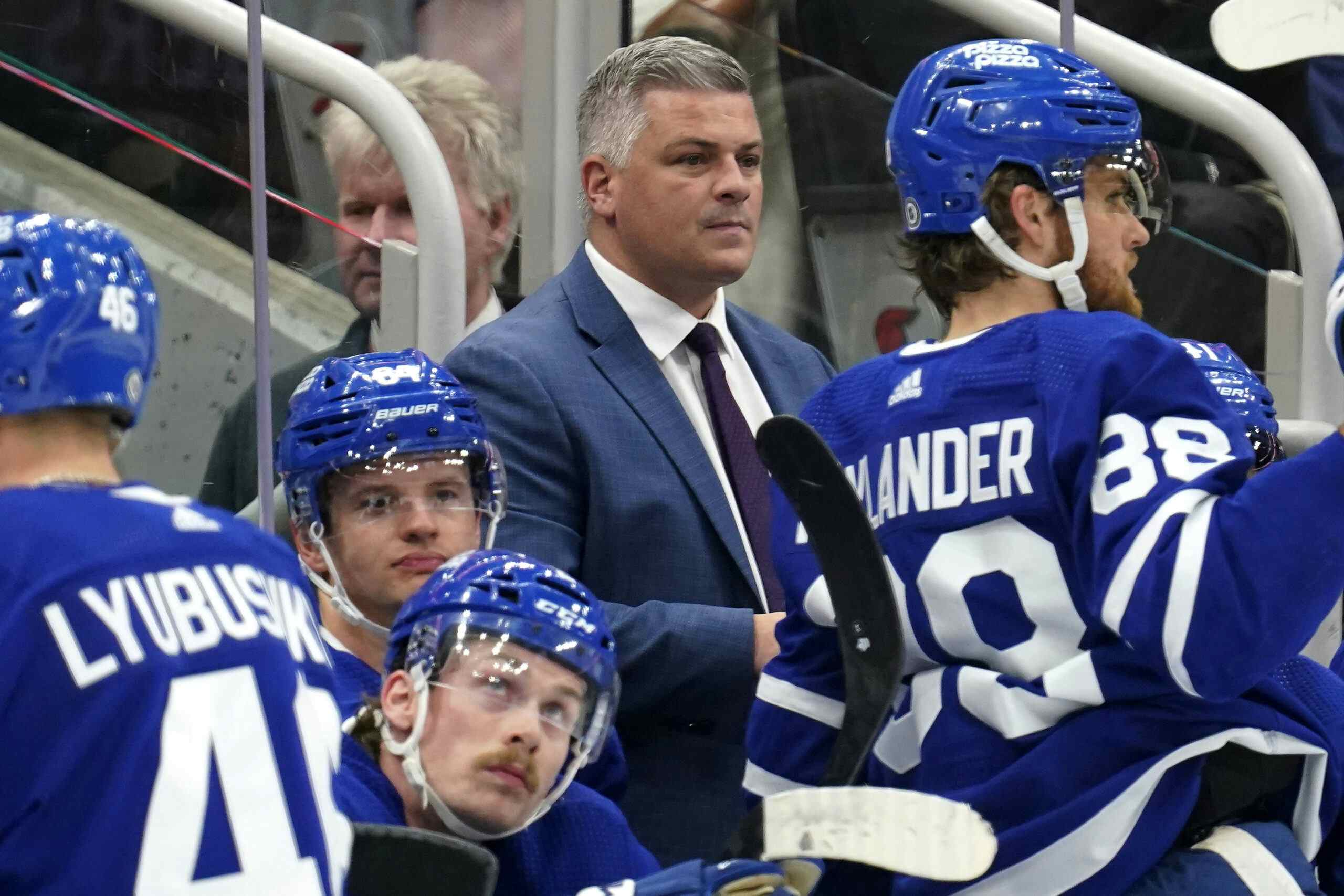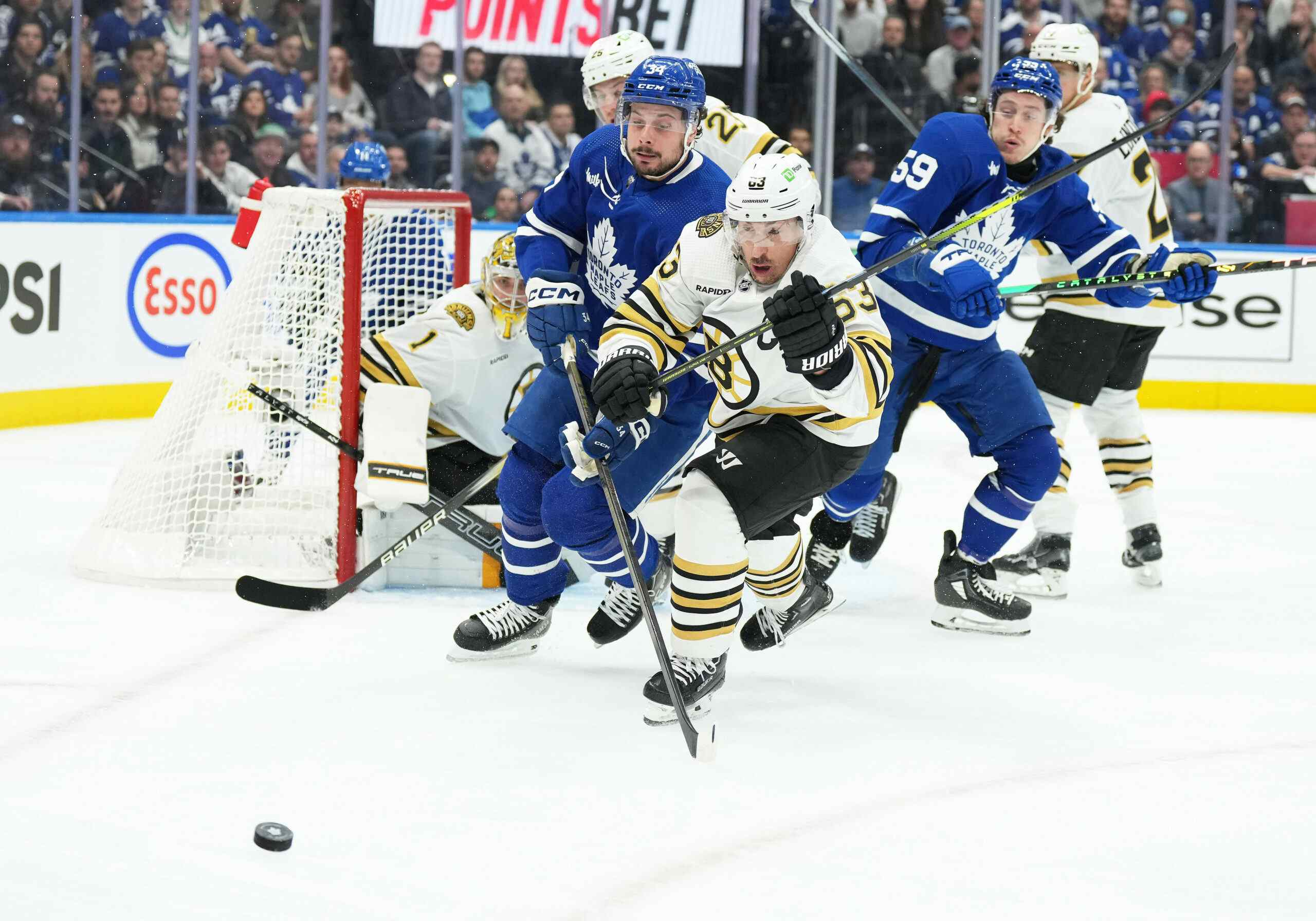Report: Maple Leafs still focussed on selling at the deadline, despite recent success

Photo Credit: Vincent Carchietta/USA TODAY Sports
It doesn’t take much in the Toronto marketplace for Maple Leafs players to be asked about the possibility of making the postseason.
The current iteration of the Maple Leafs are bad. They play like a good team, with structure through the neutral zone, and quality special teams units, but they’re not built like one.
And they’re not on pace to make the postseason. In fact, in what is arguably the weakest (or second weakest) division in hockey, the Maple Leafs sit dead last. They’re on pace for 69 points, which is nice, but not playoff worthy.
Recently the Maple Leafs have been winning though. They’ve racked up wins against teams like the Nashville Predators, the Dallas Stars, the Vancouver Canucks, and the Colorado Avalanche of late and they’ve taken points in seven of nine overall. While this recent streak of decent play has been a welcome relief from the near-constant losing Maple Leafs fans have endured over the past two seasons, it hasn’t changed the club’s overall strategy. This is still a team intent on self-immolation at the NHL trade deadline.
It’s funny that as Mike Babcock is talking playoffs, the club’s actual intent is something quiet different.
As TSN’s Darren Dreger reported on Thursday’s edition of Insider Trading, the Maple Leafs have their eyes squarely on the prize and are sticking with their play of capitalizing on inflated asset prices at the upcoming NHL trade deadline:
“(Babcock’s primary goal is) to coach this group up to a point where they’re most valuable at the NHL trade deadline, so Lou Lamoriello can move the majority of those pieces,” Dreger said on Thursday’s broadcast. “The Maple Leafs want the team in place for year three, so that they’re contending in year four, five or six for a Stanley Cup.”
Players like Shawn Matthias and PA.. Parenteau have been a major part of the club’s recent resurgence, but do they fit on Toronto’s hypothetical 2020 Stanley Cup contender? Doubt it. Does Joffrey Lupul or Tyler Bozak? I’d be surprised. How about James Reimer? Now that’s where the decisions may get a bit tough…
While the Maple Leafs’ ruthless pursuit of long-term contention is the right course of action for the club, you sort of have to feel for Maple Leafs players in this. The deck is stacked against them.
“I love flying under the radar and I don’t think many teams expected us to do anything this year, so there wasn’t too much pressure,” said Maple Leafs forward Nazem Kadri via TSN.ca. “We’re not coming into games hoping to lose and thinking about draft picks or anything like that.”
Lupul, meanwhile, thinks the team needs to focus on getting better, even as it’s likely that his club’s management team will sewer the roster on 29 February 2016 (or even before).
“Are we good enough to make the playoffs right now?” Asked Lupul rhetorically. “Probably not, but we’ve got to get better throughout the year.”
Dreger’s report adds further substance to our theory about the Maple Leafs’ program of trade market speculation using veteran assets. As we wrote following the Michael Grabner trade:
What the Maple Leafs are playing at is altogether different, but this is the most radical expression yet of their increasingly obvious plan to leverage their incomparable budget to supplement a program of short-term trade market speculation, using veteran assets. In addition to Grabner – who as previously mentioned, fits the bill – the club now has additional standard player contract (SPC) slots with which to sign one of Brad Boyes or tanking talisman Curtis Glencross.It comes down, likely, to an organizational judgement concerning how to most efficiently use their 50 SPC slots. And the club has now indicated clearly – and very radically, considering the way we’re used to seeing NHL teams operate – that they’d rather use those slots on potentially useful veteran pieces that can be swapped for additional futures when the price of short-term help gets bloated at the trade deadline, as opposed to saving those slots for fringe prospects who may (or more likely will not) develop into NHL players.
While some of the club’s recent moves – the demotion of Marc Arcobello, the signing of Rich Clune – appeared to contradict what would be an intelligent approach for a big market team to take in restocking the prospect pipeline, it seems that the Maple Leafs still have the big picture in mind. This is an organization that remains focused on winning for real several years down the road, not winning here and there several weeks down the road.
Keeping the big picture in mind? In Toronto? Why I never thought I’d see the day.
Recent articles from Thomas Drance





